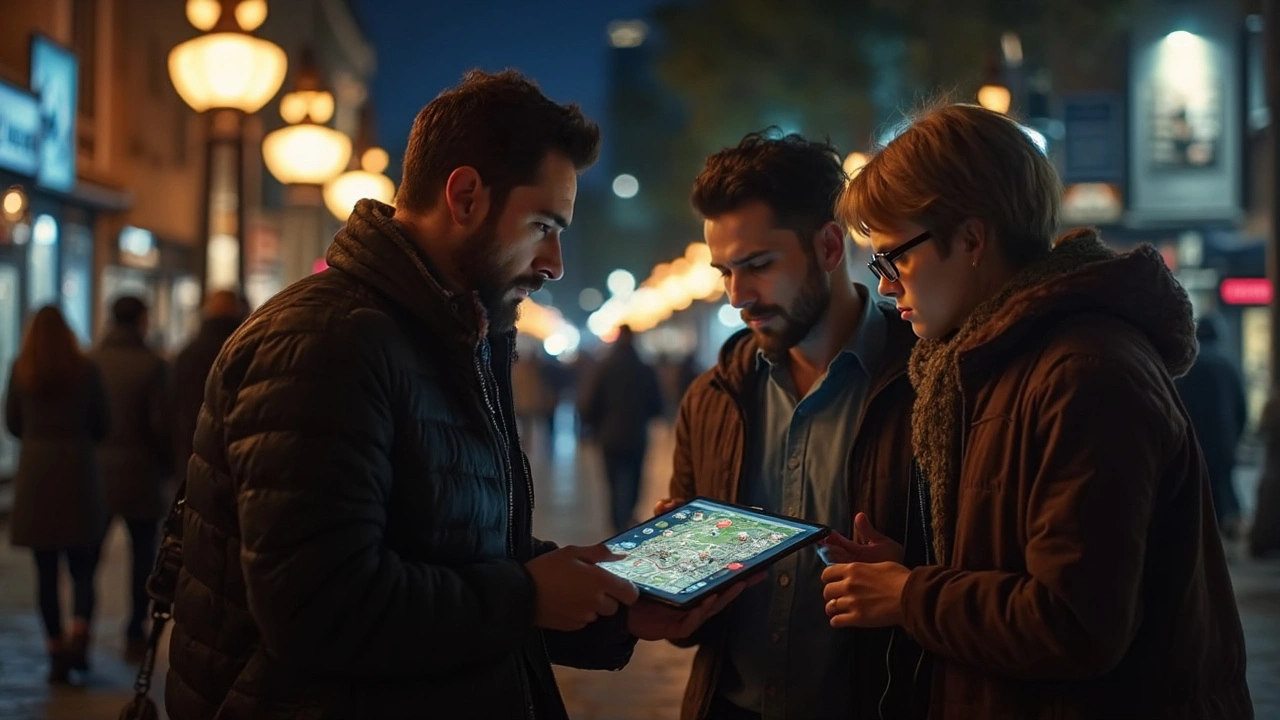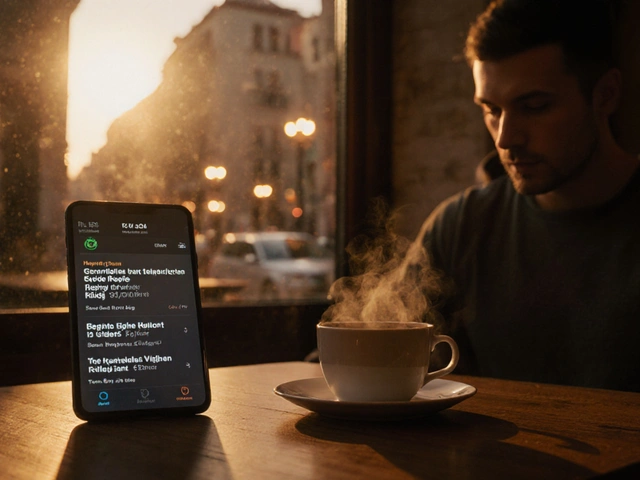If you’ve ever wondered what’s actually allowed (and what’s not) in the world of adult services, you’re definitely not alone. So many people get tripped up by rumors, outdated info, and that confusing fine print nobody really wants to read. That’s why understanding the legal details feels almost like unlocking a cheat code—knowing the rules means you won’t accidentally cross a line and land in trouble.
Here’s the big secret: the laws are different everywhere. What’s totally okay in one city could be a big problem in another just a few blocks away. Some services might be legal but only in certain settings or only if you follow specific rules. Others are more of a gray area—think of it as playing a game where the rules change depending on where you stand.
But don’t let this scare you off. With a little bit of real info, it’s easy to figure out what you need to know, dodge the common traps, and enjoy adult services safely and stress-free. No need to wade through legal textbooks or boring government sites. You just need the basics and a few tips from someone who’s done the homework for you.
- Quick Legal Takeaways
- Clear Legal Guidelines: Fast Facts
- Why Laws Matter in Adult Services
- Common Myths vs. Facts
- Safety and Smart Choices
Quick Legal Takeaways
Don’t have time for the full deep dive? Here are the most important things you should know about the legal side of adult services. Whether you’re curious, nervous, or ready to book, these are the basics you need to keep in mind to avoid hassles.
- Laws change based on location: What’s totally on the up-and-up in Nevada might mean serious trouble in Texas. Always look up city and state rules. Google it, ask a pro, or check recent news.
- Legal ages are strict: The minimum is almost always 18 years old, but some places bump this to 21. Don’t assume—double check if you’re not sure.
- Some services have gray areas: For example, massage services that don’t claim sexual intent might be legal, but anything else can cross lines fast. Know exactly what’s allowed where you are.
- Discreet doesn’t mean legal: Just because something looks “private” or “members only” doesn’t mean it’s cleared by the law.
- Online platforms aren’t always safe: Not every listing site checks for legal compliance or does proper screening.
| Location | Legal Age | Regulated Services | Enforcement Level |
|---|---|---|---|
| Nevada, USA | 18+ | Legal in licensed brothels | Strict (must follow zoning and licensing rules) |
| Texas, USA | 18+ | All forms illegal | Very strict |
| Germany | 18+ | Legal and regulated | Moderate (regular health checks, registration) |
| UK | 18+ | Many services legal, but brothels illegal | Enforced more in cities |
One more thing—if you’re not sure, ask! Lawyers who specialize in this area often do quick consultations, and tons of free resources exist online. You don’t want to make a choice and regret it later when it comes to adult services. Stay informed, and you’ll stay safe.
Clear Legal Guidelines: Fast Facts
If we’re talking legal stuff about adult services, here’s what you really need to know. Laws can shift fast—not just by country, but right down to your city or even your zip code. Here are some plain facts that help you avoid bumping into trouble:
- The difference between what’s legal and what just goes “under the radar” is huge. Something being common doesn’t mean it’s allowed.
- In most places, selling or buying sexual services is either totally illegal, semi-legal with weird rules, or legal in very specific ways (like only in licensed venues).
- Advertising is usually the first area to get regulated. Listings on public sites, social media posts, or even coded language can be tracked or flagged.
- Where things happen is also a big deal. In some areas, “in-call” (you go to them) might be legal but “out-call” (they come to you) could get you in legal hot water, or the other way around.
- Consent and age checks are everything. There is zero wiggle room when it comes to underage people or anyone not fully in control of themselves. No one wants to mess up here—it’s the biggest legal dealbreaker.
Here’s a quick peek at how legal approaches to adult services stack up in different places. These numbers are recent as of last year, but always double-check locally:
| Region | Legal? | Main Rules |
|---|---|---|
| Nevada, USA | Yes (only in licensed brothels) | Brothel license, health checks, age 18+ |
| London, UK | Partial | Private arrangement okay, no brothels, no street work |
| Sydney, AUS | Yes (regulated) | Registration, strict advertising, no coercion |
| Toronto, CA | Partial | Body rub only legal, but not explicit acts |
| Germany | Fully legal | Registration, tax reporting, health laws |
One more tip: If you ever get that nervous feeling about a service, ask direct questions about licensing and safety. Good providers will always be upfront—they know it protects everyone involved. Knowing the adult services basics puts you way ahead of most people just going in blind.

Why Laws Matter in Adult Services
Ever ask yourself why there are so many rules around adult services? It’s not just about paperwork or making life tricky. These laws aren’t random—they’re there to protect people’s safety, privacy, and rights (on both sides: clients and providers). Missing the details can mean serious trouble, not just a slap on the wrist. For anyone stepping into the adult services world, knowing the ground rules lets you enjoy the service without the headache of legal drama.
One clear fact: laws for adult services change a lot depending on where you are. For instance, in places like Nevada, some kinds of sex work are legal and closely regulated. But cross state lines to California, and suddenly, most of it is outlawed. In some countries, like Germany, the industry is legal, taxed, and monitored for health and safety. But in others, even talking about certain services online could get you fined or banned.
Here’s why the laws are so important:
- Protecting Safety: Legal rules mean providers and clients can avoid risky or exploitative situations. This helps clamp down on trafficking and violence.
- Setting Clear Boundaries: Everyone knows what’s okay and what isn’t. No nasty surprises if someone gets it wrong.
- Promoting Health Standards: Many places with legal frameworks also have regular health checks and standards providers must follow. That makes the whole experience much cleaner and safer.
- Avoiding Legal Trouble: Not knowing the law isn’t an excuse if you get caught. Even something like payment methods or advertising can sometimes be a legal minefield.
If you’re curious how wildly these rules change, check out this quick table comparing a few spots:
| Location | Legal Status | Key Requirement |
|---|---|---|
| Nevada, USA (certain counties) | Legal (licensed brothels only) | State license, regular health checks |
| California, USA | Illegal | N/A |
| Germany | Legal | Provider registration, health insurance |
| Canada | Legal with restrictions | No advertising, strict client screening rules |
The more you know, the easier it is to stay on the right side of the law and look out for your own safety. If you’re unsure about something, double check local rules—it only takes a couple of clicks, and you’ll save yourself a mountain of stress.
Common Myths vs. Facts
There’s a lot of talk—and let’s be honest, a lot of nonsense—floating around about adult services. Let’s clear up the biggest myths so you don’t fall for bad info that could get you in trouble, or just stress you out for no reason. Here’s what’s real and what’s not, with actual facts you can count on.
adult services isn’t a free-for-all—there are rules and boundaries you need to know. Ever heard someone say, “It’s totally legal everywhere if it’s private”? That’s not true. The rules can flip in seconds depending on where you’re standing or what exactly you’re doing. Here are some classic myths and the real deal behind them:
- Myth: If it’s between consenting adults, it’s always legal.
Fact: Just because adults agree doesn’t mean the law looks the other way. Most places have specific laws that ban or limit some adult services even if both people are willing. - Myth: Only the provider can get in legal trouble.
Fact: Clients can and do get charged too. Sometimes local law enforcement runs “stings” targeting clients, especially if there are complaints from the community. - Myth: Ads online mean the service is legally approved.
Fact: Just because a site lists services doesn’t make them legal or safe. Sites aren’t law enforcement, and illegal operations can and do advertise openly. - Myth: You can’t get in trouble as long as no money changes hands.
Fact: Some areas have laws that target “solicitation” regardless of if payment happens, especially if there’s an obvious exchange or offer. - Myth: Laws are the same in every city and state.
Fact: This is probably the biggest trap. What’s fine in Nevada, for example, could get you in hot water in Texas. Always check local rules.
People love to toss out numbers about arrests and legal issues in the industry, but here’s what’s really happening, based on public records in the U.S. for 2024:
| State | Arrests Related to Adult Services (2024) | Laws Regarding Adult Services |
|---|---|---|
| Nevada | ~83 (mostly unlicensed activity) | Legal in licensed brothels/rural counties |
| California | ~1,220 | Illegal except for some protected services (e.g., adult massage; very specific rules) |
| Texas | ~890 | Illegal statewide |
| New York | ~740 | Illegal, but recent reforms have reduced penalties for clients |
Bottom line: Don’t just listen to buddies or random strangers on the internet. The laws are super local and can surprise you if you don’t take a couple minutes to check them out. When in doubt, a quick look at your city’s official website or a chat with a legal pro can save you tons of hassle.

Safety and Smart Choices
Let’s be real—staying safe isn’t just about avoiding sketchy situations. It’s about knowing your rights, understanding what you’re agreeing to, and making choices that keep you comfortable and protected. Whether you’re booking adult services for the first time or you’ve done it before, a little preparation can go a long way.
- Research first: Choose licensed services when possible. Licensed providers are checked for compliance and handle things more professionally.
- Communication matters: Be clear about expectations upfront. If someone won’t answer your questions, that’s a red flag.
- Meet in safe spots: Reputable providers usually have secure locations. If it’s your place, set boundaries and let a friend know where you are.
- Stick to cashless payments: A lot of legit providers take digital payments, which keeps things more secure for everyone. Avoid sending deposits to random personal apps; always look for business accounts or platforms with a track record.
- Follow your gut: If anything feels off—even just a little—don’t go through with it. No service is worth risking your safety.
Worried about privacy? Reputable agencies take steps to protect your information. If they’re asking for too much personal info up front, like your social security number or official documents, walk away. Most just need your first name and contact info to book.
Police stings and scams are real risks. In 2023, over 2,000 reports were made about scammy listings and fake agencies in the US alone. That’s why researching and sticking to well-reviewed providers cuts down your risk of getting tricked.
| Tip | Why It Matters |
|---|---|
| Check reviews on independent forums | Fake reviews happen, but multiple consistent positive stories are a good sign |
| Use agency websites, not classifieds | Agencies follow stricter rules; classifieds are riskier |
| Share your location with a friend | Safety in numbers—someone always knows where you are |
| Confirm all details before you meet | No surprises—protects you and the provider |
And here’s a hard truth: if someone pressures you or tries to guilt you into changing what you agreed on, back out. Boundaries exist for a reason. Real pros respect them and want repeat clients, not drama. Stay informed, trust your instincts, and you’ll be miles ahead of most people navigating this scene.











